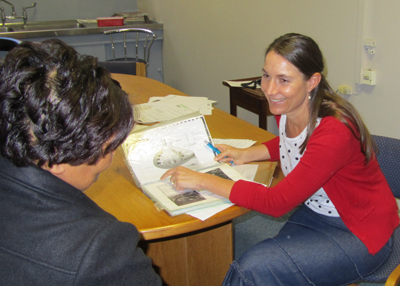T he definitive diagnosis of PIDs depends on both clinical and immunological evaluation as well as genetic testing, since the physical signs may be nonspecific, subtle, or even absent in early diagnosis. Therefore, to confirm a clinically suspected diagnosis of genetic immunodeficiency, the evaluation of an immunological disorder in any patient should lead to an investigation of the potential underlying genetic cause.
he definitive diagnosis of PIDs depends on both clinical and immunological evaluation as well as genetic testing, since the physical signs may be nonspecific, subtle, or even absent in early diagnosis. Therefore, to confirm a clinically suspected diagnosis of genetic immunodeficiency, the evaluation of an immunological disorder in any patient should lead to an investigation of the potential underlying genetic cause.
Here at PIDDGEN, we have developed several genetic tests aimed at detecting mutations in individuals affected with immunodeficiencies. These methods are based on Whole Exome Sequencing, PCR amplification and Sanger sequencing of target DNA segments from affected individuals or at-risk relatives.
We do provide a diagnostic service as well as genetic counselling and/or consultations with a Medical Geneticist. Please contact us for more information or view our Facebook page for regular updates.
List of currently available Diagnostic Genetic Tests:
XLA Gene BTK: Test available for Exon 3
The BTK gene comprises 19 exons
CGD Gene CYBB: Test available for Exon 10
Gene CYBB: Primers also available for exons 3, 4, 5, 7, 8.
Almost 2/3 of CGD cases are caused by mutations in the CYBB gene This gene comprises 13 exons
XLP Gene SH2D1A: Test available for Exons 1-4
Whole coding sequence is covered
NOD2 Gene NOD2: Test available for Exons 1-12
Whole coding sequence is covered
Testing for other genes can be arranged, including Whole Exome/Genome Sequencing.
Genetic Counselling
Genetic counselling is aimed at helping individuals understand the genetic and medical implications of a condition, which includes discussion of the relevant recurrence risks of a specific condition and diagnostic tests available. For a genetic research study, genetic counselling is relevant both pre-test (explaining the aims, procedures, risks and benefits of the research study and obtaining consent), and post-test (feeding back potentially complex genetic results).
More information about genetic counselling and the genetic services offered at Tygerberg Hospital is available here.

